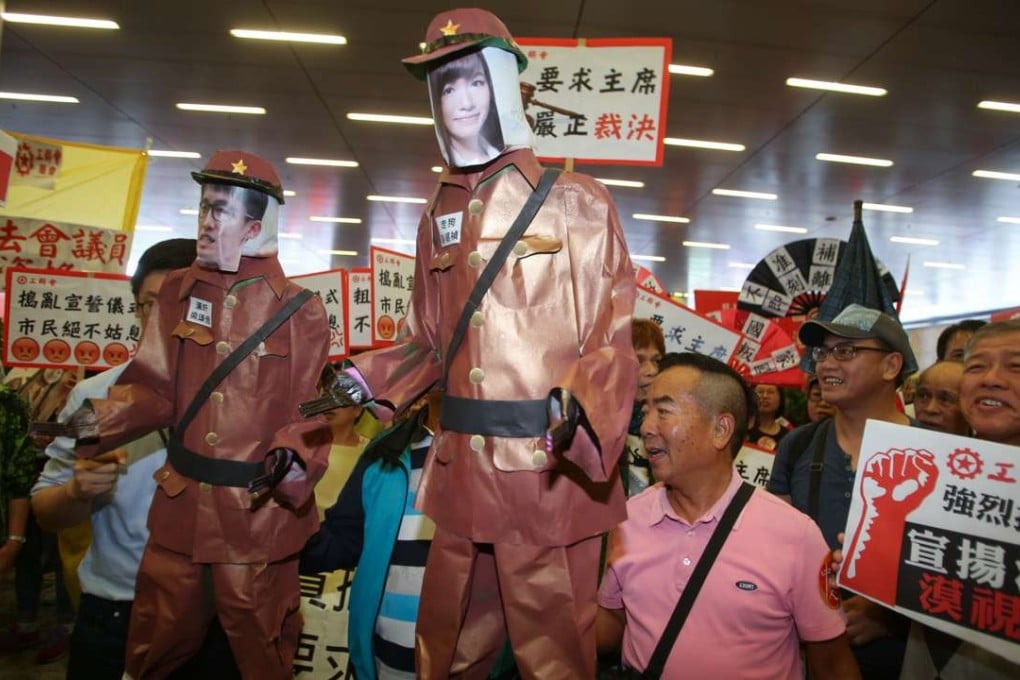Protest planned over two newly-elected lawmakers’ use of term ‘Chee-na’
Thousands are expected to protest on Wednesday over two newly elected lawmakers’ use of the term the derogatory term during their oath-taking ceremony

“Chee-na”. The word has been playing on 81-year-old Lam Chun’s mind these past couple of weeks, keeping her awake at night.
Moved equally by anger and heartache, Lam has decided to join a rally organised by an alliance of 25 pro-Beijing groups on Wednesday morning outside the Legislative Council complex to protest against the Youngspiration duo for using the offending word in their oath-taking when the new term opened on October 12.
“They have chosen to put themselves on the wrong side of history,” Lam told the Post, her eyes glinting with emotion.
“Whatever political stance you may have, you never insult your countrymen.”
Lam, now retired and a volunteer at New Territories Association of Societies, has never taken part in a protest before. But this time, she said she felt compelled to join in. A turnout of 10,000 is expected, according to alliance spokesman Tsang Heung-kwan.
A former member of the guerrilla squad East River Column’s Hong Kong and Kowloon Independent Brigade during the second world war when she was in her teens, Lam said: “Do you know why the Japanese used the term to call Chinese? It was to imply that they were treating us like pigs and they could kill us whenever and wherever they liked.”